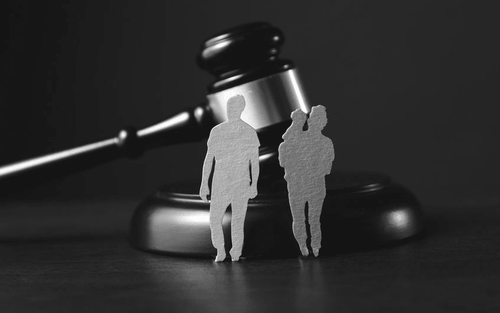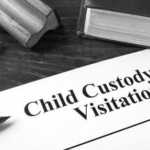It’s no surprise that divorce cases affect more than just the parties, especially when there are children involved. It’s important to keep in mind how the children may be affected by a divorce. A divorce can be a traumatic and confusing time to a child, leading them to experience mental and emotional distress. However, if the case is handled correctly and the children’s best interests are kept at the forefront of the parties’ minds, it is possible to find a solution that will work for everyone involved.
Negative Impacts of Divorce on Children
- Physical and Emotional Effects: A divorce can take a physical and emotional toll on a child. Research shows that children whose parents have divorced are more likely to experience accidents, injury, and illness when compared to children whose parents have remained married. Studies have also shown that children living in intact, nuclear families are about half as likely to have a mental disorder or need psychological help when compared to children in step, blended, or one-parent families. Children of divorce have also been found to have higher suicide rates, are more vulnerable to drug and alcohol use during their adolescence, have fears about commitment, and have negative memories about the legal system.
- Parental Alienation: One thing that is commonly seen in divorce and custody cases and is extremely frowned upon by the Court, is parental alienation. This occurs when one parent tries to harm the relationship their child has with the other parent. This may be done by making negative comments to the child about the other parent, interfering with the child’s communication with the other parent, and even withholding the child. While it can be difficult for a parent to put aside their personal feelings towards the other parent, parental alienation ultimately harms the child and can change how a child perceives his or her parent, which can alter their relationship for the rest of their lives.
- Children of Divorce Have Higher Divorce Rates Themselves: Research shows that children of divorce are more likely to become divorced down the road. One study showed that if a woman’s parents divorced, her odds of divorce increased by 69%. If both a husband and wife’s parents were divorced, the risk of divorce increased by 189%.
Positive Impacts of Divorce on Children
It’s important to note that a divorce does not always negatively impact a child. In fact, there are certain circumstances where a divorce may just be the best thing that could happen for that child. Take, for example, a child that is forced to listen to their parents argue and yell at each other all day and night. A divorce would remove the child from the volatile home-life environment and could help the parents establish a good co-parenting relationship that can counterbalance the negative impacts of divorce. There are multiple other positive impacts it can have as well.
- The “Less Involved Parent” May Become More Involved: This may be because the parent finally realized they wanted to step up their involvement or an attorney told them they needed to “show” that they want to be more involved in the child’s life. Either way, it can lead to the child having both parents in their lives which can positively affect the child and show them how much they are loved.
- Children Learn Conflict Resolution Skills: Even though their parents couldn’t make their marriage work, if they are able to sufficiently co-parent the children, the children are able to watch and learn high-level conflict resolution skills as it is no easy task co-parenting with someone you were once married to.
- Children Have More One-on-One Time With Both Parents: As the child is going back and forth between parents, they are able to spend the special one-on-one time that they may not have had during the marriage. While teenagers may not be as thrilled about this, hopefully, they will look back on it when they are older and appreciate the time and effort the parent put in.
If you are currently going through a divorce or are considering one, it may be in your best interest to have an experienced family law attorney at your side.
Please contact the Family Law Division at SW&L at 701-297-2890 or send us an email via the contact form below.
The information contained in this article and on this website is for informational purposes only. Do not rely on the information on this website as legal advice.










